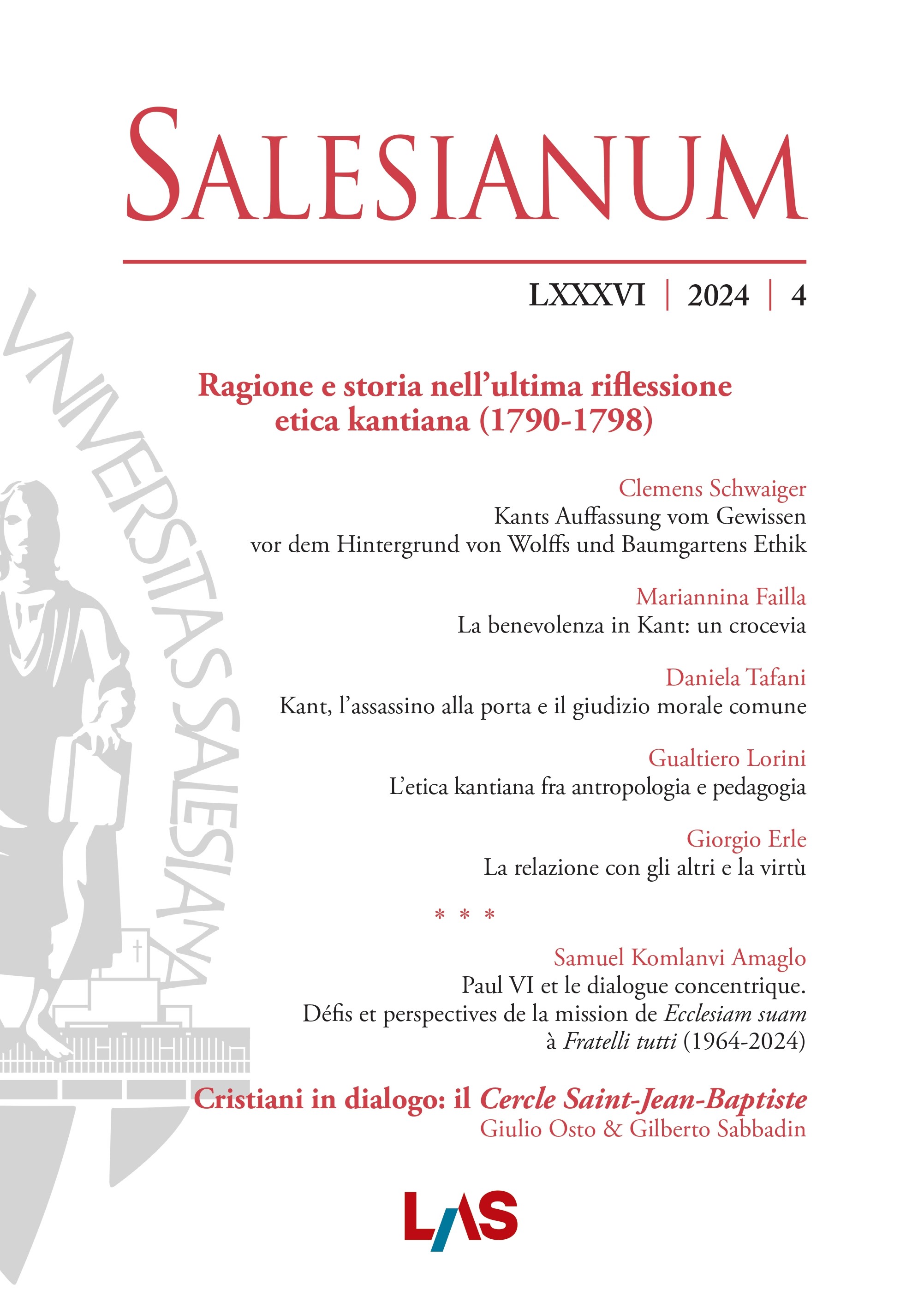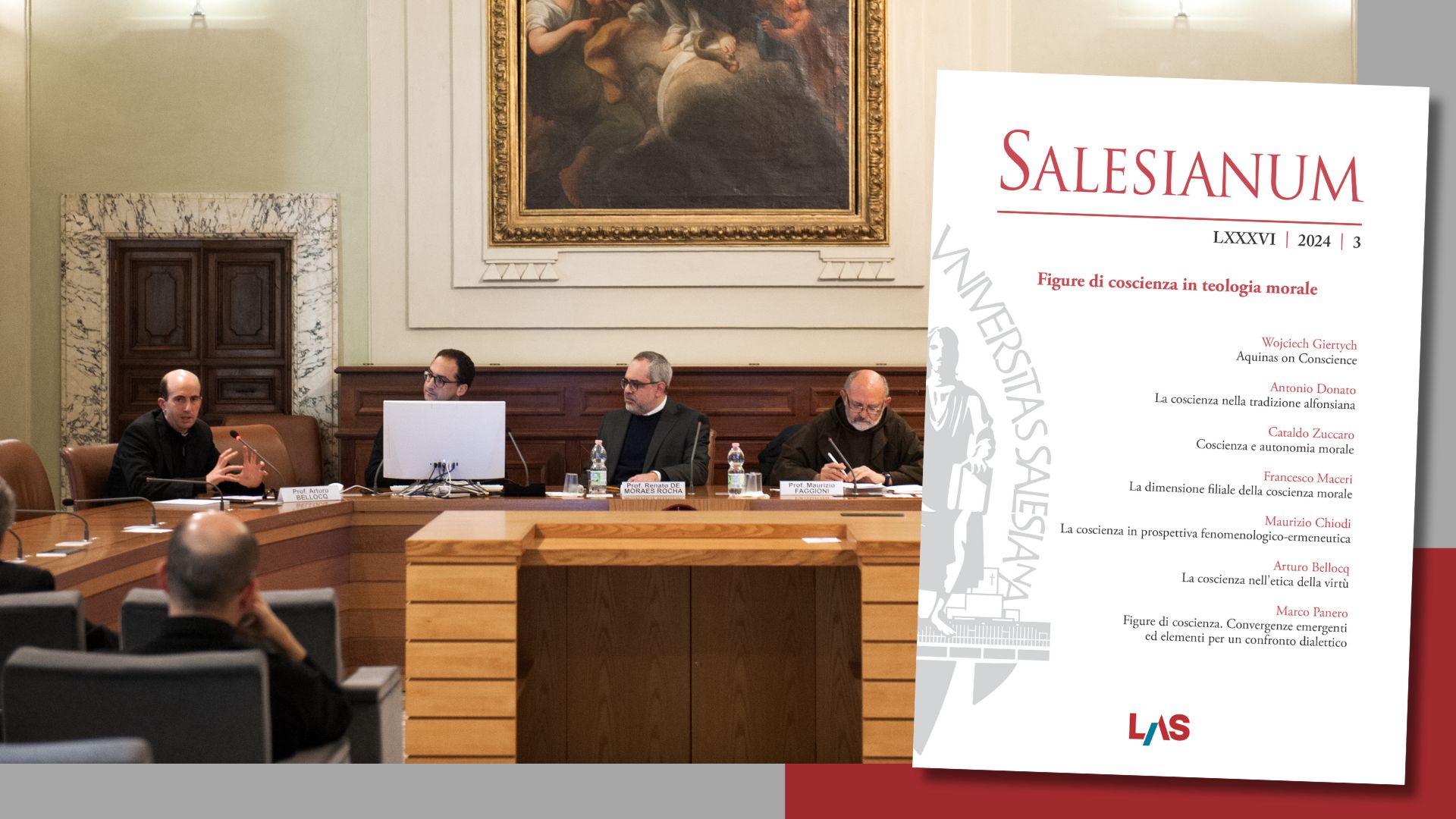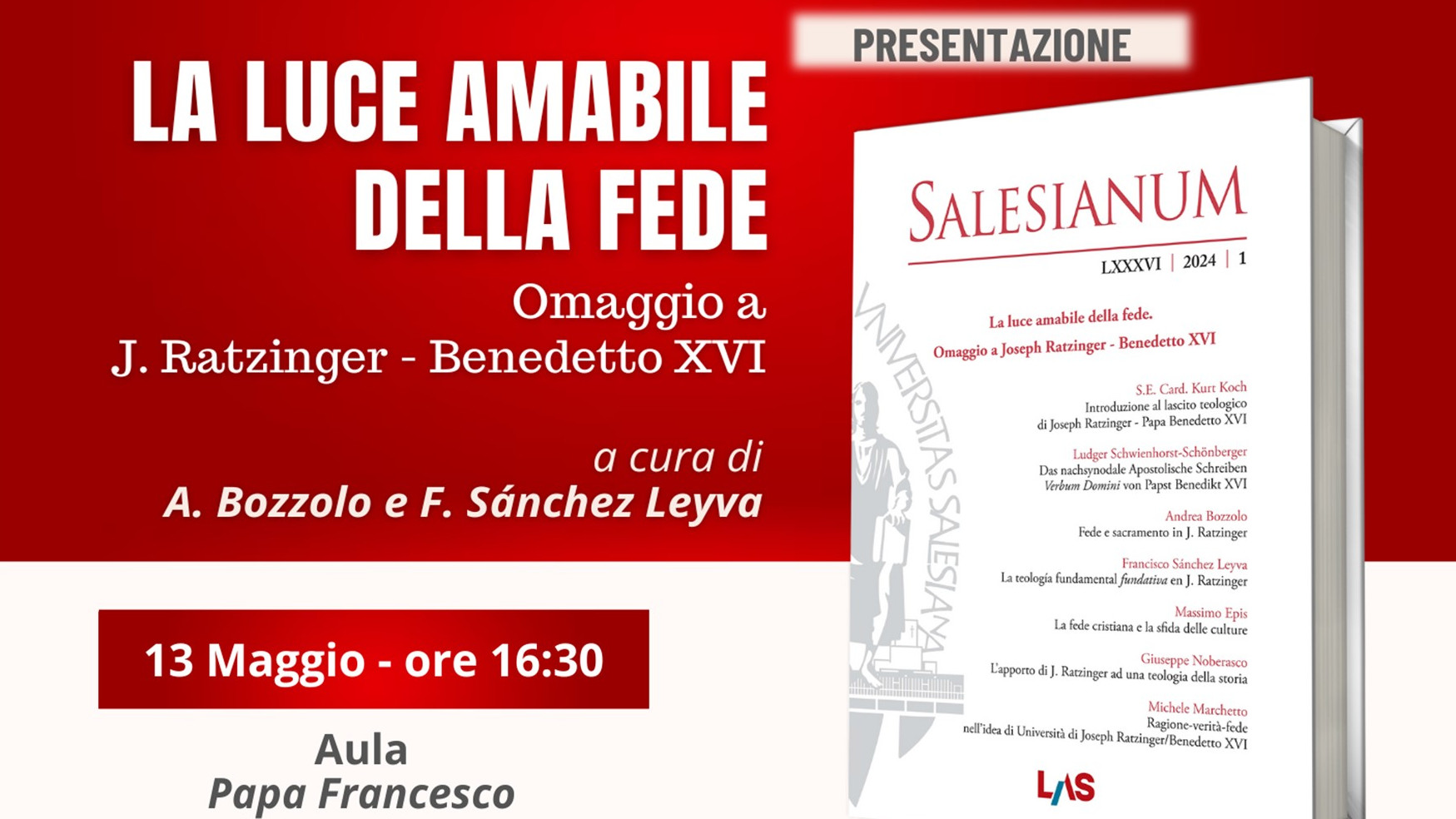An Exercise in Christian Philosophy: The Intellectual Daring of Giuseppe Abbà
Salesianum vol. 83 (2021) n. 4, 706-717
Sezione: Studia
Sommario
ll recente pensiero morale cattolico non è stato ben servito dagli autori che mostrano profondo apprezzamento per il realismo morale di San Tommaso d’Aquino. Il padre salesiano Giuseppe Abbà costituisce una brillante eccezione a questa triste regola. Lungo la sua carriera, Abbà – che aveva una profonda conoscenza delle teorie etiche moderne – seppe offrire una penetrante proposta di etica della legge naturale. Quel che è più importante, sviluppò il suo pensiero in armonia con i dati fondamentali della rivelazione cristiana, portando a compimento questo progetto senza abbandonare l’oggetto formale della propria disciplina, la filosofia. Il presente hommage intende mostrare come Abbà sia in linea con i grandi commentatori tomisti e, cosa assai significativa per la sua eredità intellettuale, con il magistero papale del tempo. In un periodo in cui la Chiesa si trova a fronteggiare in Occidente una cultura che si svincola rapidamente dalle sue radici cristiane, la solida riflessione di Giuseppe Abbà merita profonda attenzione e viva stima.
Abstract
Recent Catholic moral thought has not been well served by authors who exhibit a profound appreciation for the moral realism of Saint Thomas Aquinas. The late Salesian Father G. Abbà offers a brilliant exception to this sad rule. Throughout his professional life, Father Abbà—who was well versed in modern ethical theories—provided a penetrating account of natural law ethics. What is more important, this author developed his thinking in harmony with the most profound givens of Christian revelation. He accomplished this task without abandoning the formal object of his own discipline, that of philosophy. The present hommage seeks to show how much Father Abbà stands in line with the great Thomist commentators and, what proves of greater significance for his legacy, with the papal magisterium of his period. During a period when the Church faces in the West a culture that moves quickly away from its Christian heritage, the sound reasoning of G. Abbà merits both close attention and high praise


